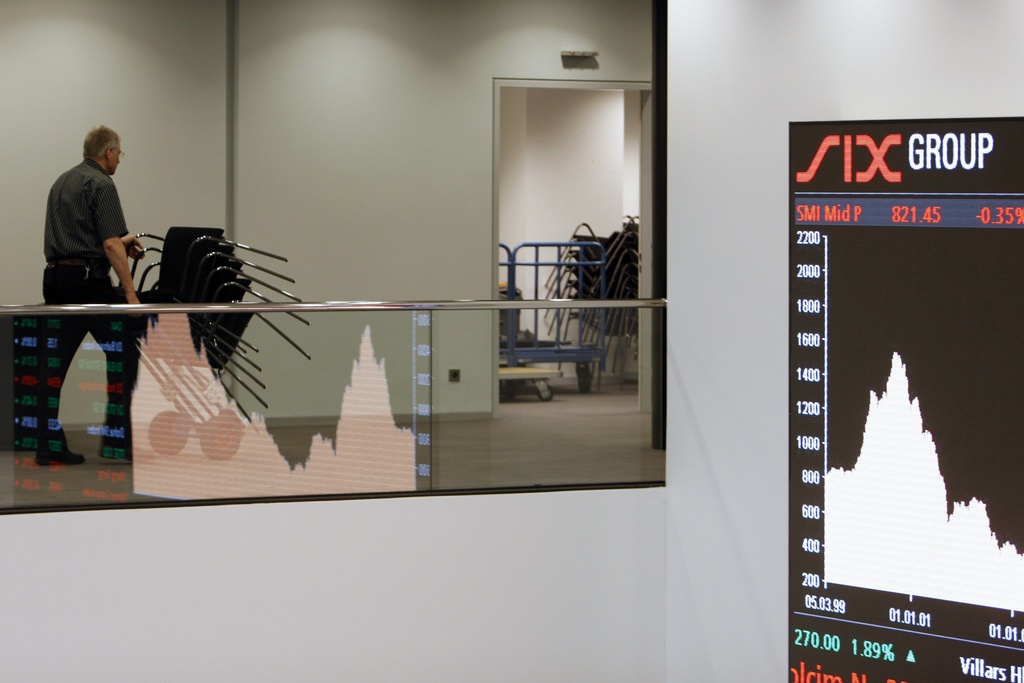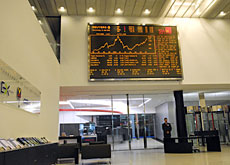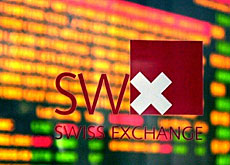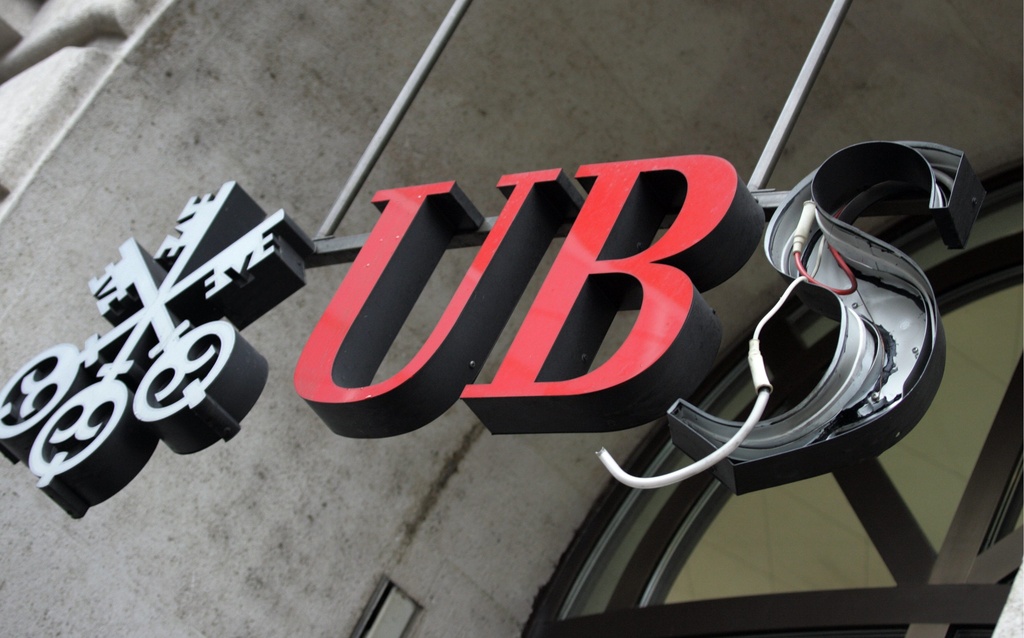Goliath bourse could weigh on Swiss exchange

The proposed merger of the New York and German stock exchanges to create the world’s largest trading platform would add to mounting pressure on the Swiss bourse.
The Swiss SIX Group would have to react to the creation of a new giant exchange by either diversifying its activities further or by sacrificing its independence, according to experts.
On Tuesday, the New York Stock Exchange (NYSE Euronext) and the German Börse agreed terms for a ground breaking fusion. The deal marks the latest step in a spate of merger activity in recent years in response to increasingly tight competition.
If the merger goes ahead as planned, the much smaller SIX could find itself faced with some unpalatable choices, according to Manuel Ammann, director of St Gallen University’s institute of banking and finance.
SIX faces competition not only from mega bourses, but also from a growing number of new trading platforms established by banks in the wake of European regulation changes that allowed trading to take place away from exchanges.
“The danger is not imminent, but we could in future have huge platforms on the one side and flexible, low cost platforms on the other, with mid-sized exchanges being squeezed between the two,” Ammann told swissinfo.ch.
“If this trend carries on and rivals grab more market share then the question will obviously arise if the Swiss exchange is large enough to run effectively. If not, it would then either have to merge or change its business model.”
Mergers rejected
SIX has so far resolutely refused to contemplate a merger, rejecting an advance from the German Börse in 2004 and two years later publishing a strategy report that ruled out other such fusions.
Instead, the group restructured into a more streamlined model three years ago, cut fees and has launched into a number of sideline businesses to complement its core activity of trading the shares of Swiss blue chip companies.
SIX has moved more into clearing, financial information, payment systems and credit card services, in addition to running its well established derivatives, securities and structured products trading platforms (Eurex, Stoxx and Scoach) in co-ownership with the German Börse.
SIX said it would discuss the future of these ventures with its counterpart in Frankfurt “in due course” in the light of the proposed NYSE Euronext merger. But the group declined to comment on the wider implications of a US-German mega exchange.
Speaking at a conference last month, SIX chairman Peter Gomez outlined some of the challenges facing the group.
Uneven playing field
The biggest challenge facing all traditional exchanges is the emergence of more flexible, less regulated trading platforms that took advantage of the European Mifid regulations ending the monopoly of bourses for trading shares and other financial instruments.
“Stock exchanges are regulated more and more whereas there is another playing field where [new] exchanges pop out of the ground in a field that is practically regulation free,” he said. “This is an uncomfortable situation.”
Gomez revealed that the Swiss bourse had lost nearly a third of its traditional share trading activity of blue chip companies to these new platforms in recent months. But he insisted that SIX’s strategy of diversification of business lines put it in a good position to weather the storm.
The NYSE Euronext and German Börse merger plan is designed to meet the challenge in a different way. The exchanges hope the fusion would save IT costs and attract more customers because of its very size and security.
Change tradition
However, former Swiss stock exchange executive Richard Meier remains unconvinced that this strategy would work. He believes the merger could create a cumbersome monster bogged down in rivalry as each partner struggles to give up its national identity.
History also shows that it is difficult to prise trading of shares and securities away from traditional pastures no matter how big and impressive a rival platform becomes, he added.
Meier believes the Swiss exchange – like all other traditional bourses – faces a greater threat from the new trading platforms. To successfully meet this challenge, exchanges must move away from their roots and change their way of thinking.
“Stock exchanges have to reinvent themselves and move away from the legacy of the last 200 years,” he told swissinfo.ch. “They have always been a strange combination of business enterprise, regulator and cartel acting in the interests of their members.”
“That culture worked wonderfully in my time, but it will not work in future with these new streamlined platforms working in a more efficient way.”
For the SIX group, owned by 150 Swiss banks and other financial institutions and one of only two European exchanges still in private hands, this could prove quite a wrench.
The roots of the Swiss stock exchange can be traced back 150 years. In 1995, the exchanges of Zurich, Bern and Basel were merged to form the SWX Group – rebranded SIX Group in 2008.
SIX Group is one of the few privately owned exchanges in the world – only the Spanish bourse has the same ownership structure in Europe.
Since it changed its structure in 2008 the Swiss exchange has controlled by an association of 150 financial institutions – mainly banks. UBS and Credit Suisse hold just over 30% of the group’s shareholding.
Companies are listed on the Swiss Market Index (SMI) and the Swiss Leader Index (SLI).
In 2004, the Swiss bourse declined an offer to merge with its counterpart in Frankfurt. Two years later, a strategic review reinforced the bourse’s intention to remain independent.
As competition between exchanges intensified, the New York bourse (NYSE) merged with the Paris based Euronext in 2007. A proposed merger of the London stock exchange (LSE) and the US technology bourse Nasdaq came to nothing.
The introduction of European regulations (Mifid) in the same year allowed trading outside of regulated exchanges, resulting in the creation of alternative bourse’s backed by banks.
Merger mania returned last year with the agreement to fuse the Singapore and Australian bourses. Talks between the LSE and the Canadian exchange are ongoing.

In compliance with the JTI standards
More: SWI swissinfo.ch certified by the Journalism Trust Initiative





You can find an overview of ongoing debates with our journalists here. Please join us!
If you want to start a conversation about a topic raised in this article or want to report factual errors, email us at english@swissinfo.ch.